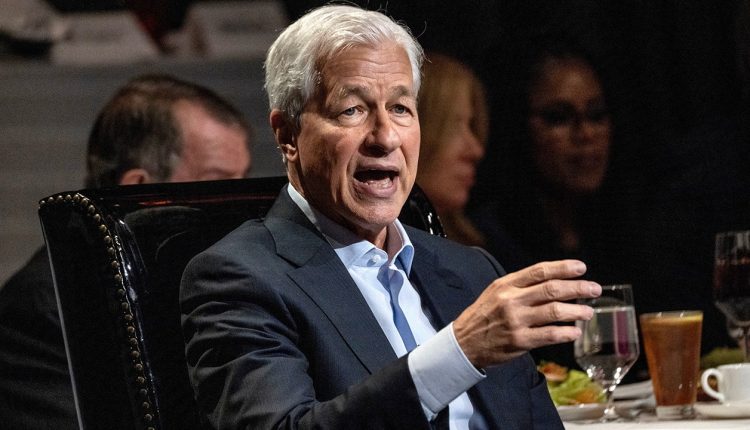JPMorgan Chase CEO Jamie Dimon explained the factors that he saw as leading to President-elect Donald Trump’s electoral victory over Vice President Kamala Harris in an interview that was released this weekend.
Dimon was interviewed by CBS correspondent Lesley Stahl for “CBS News Sunday Morning” and said that he saw frustration among American voters about the government’s policies and the issues political leaders focused on.
“People were angry at whatever they called the state – the ‘swamp.’ Ineffective government. That people wanted kind of more pro-growth and pro-business policies, that they didn’t want to be lectured to on social policies continuously. I think it’s the lecturing part of it. It’s social superiority, it’s the ‘My way or the highway.’ I traveled all over the country; I felt it wherever I went,” Dimon said.
Stahl asked Dimon about whether he understands that there is “a sense of gloom out there about the economy.”
FORD EXECUTIVE BELIEVES TRUMP AND MUSK WANT TO ‘STRENGTHEN’ THE AMERICAN AUTO INDUSTRY
“I do understand it, ’cause I think there are a lot of legitimate concerns that Americans have,” Dimon replied. “For example, ineffective government, they’re angry about it. They’re angry about immigration. There’re people with legitimate issues.”
| Ticker | Security | Last | Change | Change % |
|---|---|---|---|---|
| JPM | JPMORGAN CHASE & CO. | 244.21 | +4.35 | +1.81% |
Dimon went on to say that inflation and a disconnect between the government’s policy priorities and the outcomes of those policies in rural communities added to that frustration.
“It was inflation, it was all the money that was given out. If you go to a rural area, and you look at all the things that were done, those things like even EV credits, all this green stuff. They don’t look at it like it benefited them. They still didn’t have jobs, incomes didn’t go up, their schools weren’t working,” he explained. “So you have to be very careful when you analyze what happened in our society about why people looked at these and said this didn’t work for me.”
ELON MUSK SAYS DOGE WILL ‘TRY’ TO HIT ITS GOAL OF $2T IN CUTS, BUT ADMITS THEY MIGHT FALL SHORT
In a portion of the extended interview with CBS, Dimon said that government bureaucracy is burdening small businesses and contributing to pessimism about economic opportunity, as well as frustration with government agencies.
“Every single person out there who deals with the federal government, particularly small businesses, know that bureaucracy is extraordinary. We all laugh at it now. ‘I can’t get permits, I can’t get certificates of occupancy, I can’t get this, this rule says don’t do that, people don’t have to go to work anymore,'” he explained.
“All these things, it’s gotta be changed. I think it drives a lot of low morale and anger at the government and so it’s got to be fixed. Government needs to demonstrate its competency,” Dimon said.
Dimon was asked what advice about policy he would give Trump for his second term and pointed to immigration reform and border security.
“Get immigration, border security right and then proper immigration after that – legal immigration. Wanted immigration. Whether it’s seasonal workers, H-1B visas, which I think most people kind of agree with, by the way,” he explained.
WALMART CEO DOUG MCMILLON MEETS WITH TRUMP ON TRADE RELATIONS, INVESTING IN US
Stahl asked Dimon whether there is anything “out of whack” with the U.S. economic system, given that the highest earning Americans are seeing their wealth increase.
“I think you have to be very careful to say, ‘What’s outta whack?’ You want a healthy economy, and a really healthy economy lifts up all citizens. You want to help all Americans? Grow the economy. You can wail at the moon. That’s not going to grow the economy,” he explained. “And if there are some unfair things that created some of that wealth, they should be fixed.”
“If I was king for a day, I would probably change a bunch of the tax laws, too, which I’m not gonna give you specifics on. It won’t reduce it as much as you seem to think it should be reduced,” Dimon said. “I think the wrong part is that the bottom 30% didn’t do better, not that the top 0.1% did so well.”
The JPMorgan CEO did offer one specific tax policy suggestion and said he would double the earned income tax credit, which supplements the income of low-to-moderate income working households. “That alone would put a lot more money into the pockets of people who are working who are lower income, it would go into their communities, into their families,” he said.
Read the full article here

